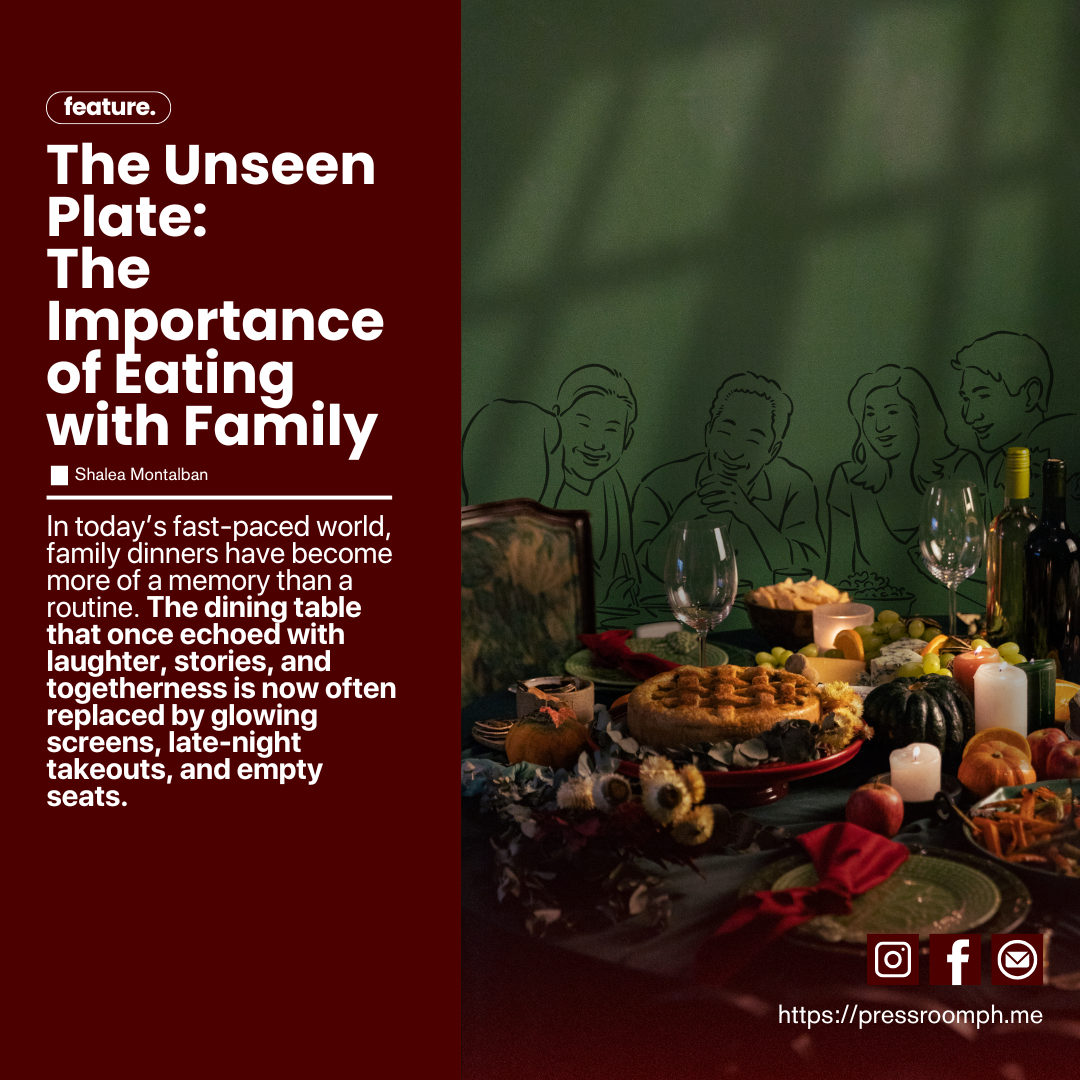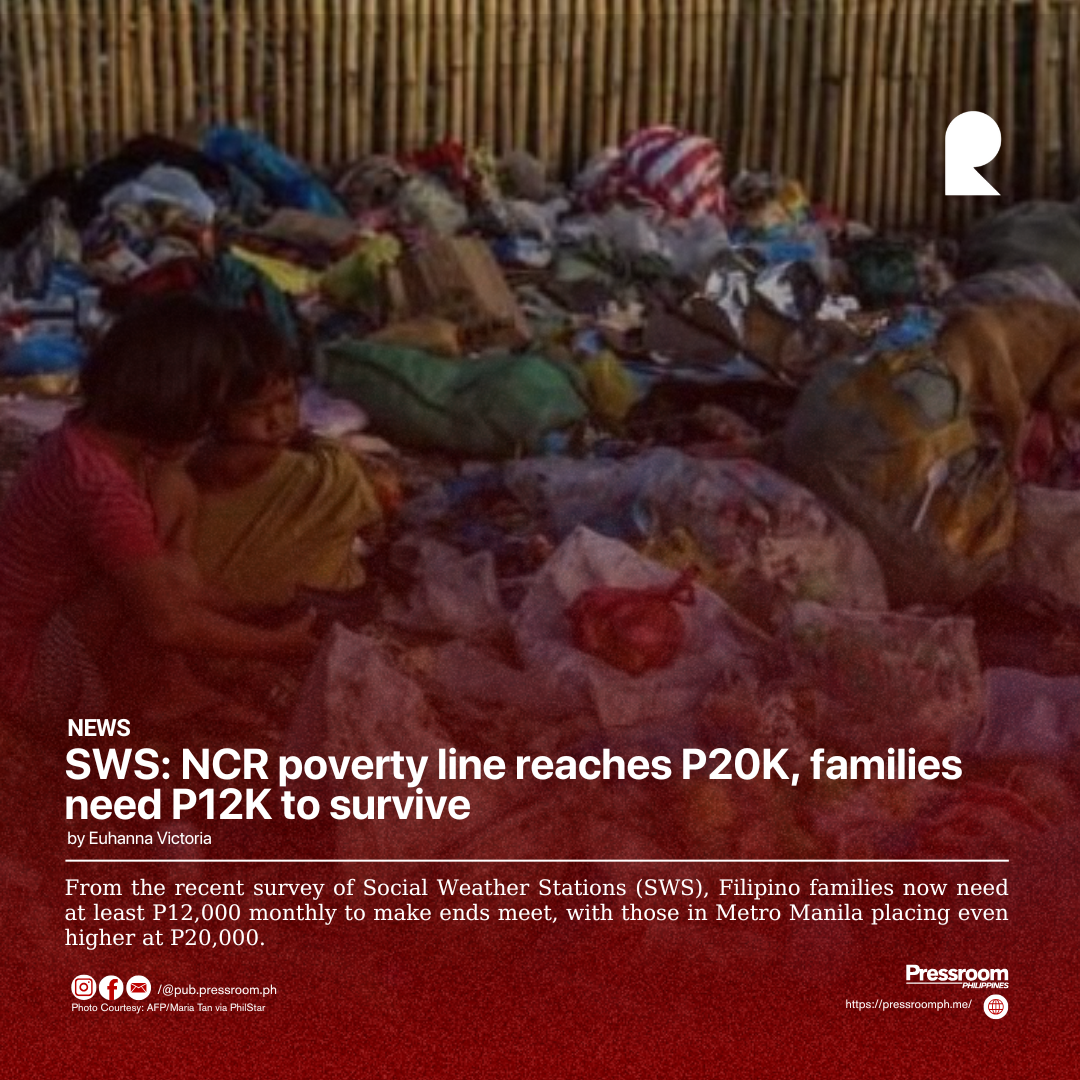In today’s fast-paced world, family dinners have become more of a memory than a routine. The dining table that once echoed with laughter, stories, and togetherness is now often replaced by glowing screens, late-night takeouts, and empty seats.
We’re constantly running—school, work, errands—but in the process, we forget the most basic thing that binds us: sitting down and eating together. It may seem small, but the absence of this habit leaves a bigger void than we admit.
Growing up, many of us were told, “Kain na, sabay-sabay tayo.” Back then, it was just another routine. But now, as schedules collide and silence replaces conversations, we realize that those shared meals were never about the food. They were about presence—being seen, heard, and understood by the people who matter most. It’s where we could rant about a bad day, laugh about nonsense, or quietly enjoy each other’s company. Family meals were a form of healing we didn't know we needed.
When families stop eating together, something more than mealtime is lost. The connection thins, the stories stop, and we become strangers in our own homes. A child eats alone in their room while the parent finishes work in the living room. Conversations turn into checklists. “Kumain ka na?” becomes just a routine question, not a moment of care. And without realizing it, we become emotionally starved in a house full of people.
The reality is, a lot of problems—mental health issues, broken relationships, even poor communication—could start from this simple disconnect. Studies aside, deep down we know it: the warmth of a shared meal can calm the soul. But today, we trade it for convenience. We prioritize deadlines over dinner, followers over family, and we wonder why the warmth of home feels colder each day.
It hurts to realize we only appreciate family meals when they become rare. It takes a loss, a fight, or a silent birthday dinner for the guilt to hit. Then we remember how comforting it was to be around those who asked how your day went, who passed the rice with a smile, who offered the last piece of chicken without a word. That was love—unspoken, served on a plate.
Eating with family is not just a tradition. It’s an act of love. A moment of connection. A sign that no matter how busy the world gets, we still choose each other. And if we don't fight to keep that alive, we might wake up one day realizing we lost our family—one skipped meal at a time.






